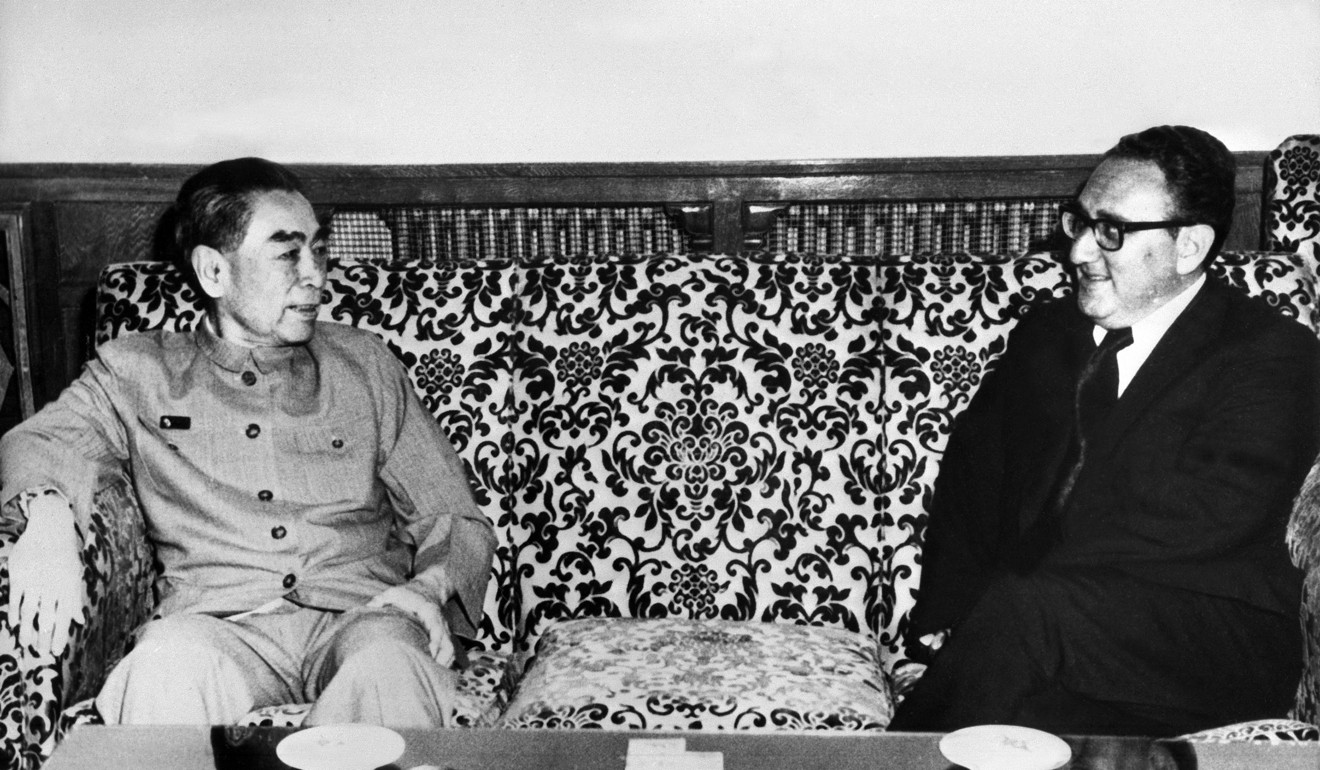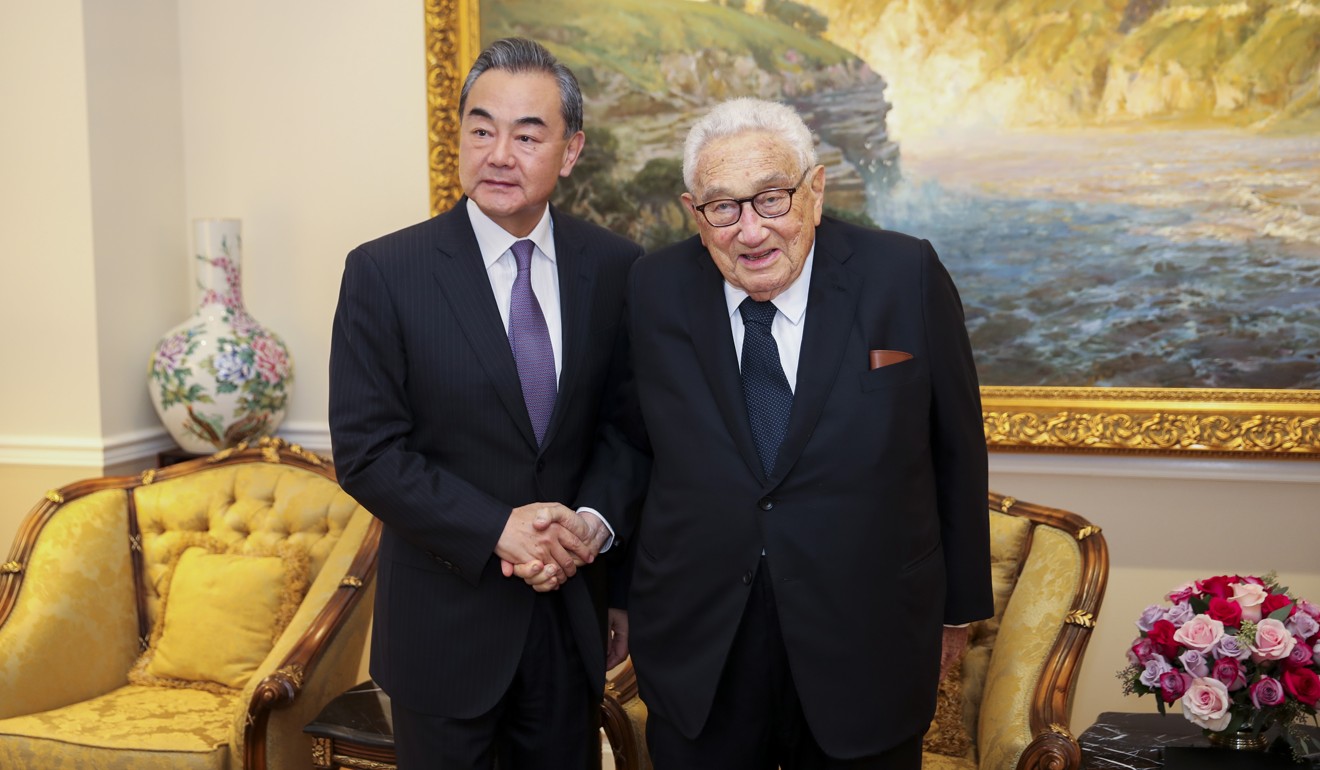
Henry Kissinger: China, US must reveal red lines to avoid conflict
- China’s continued growth means Washington and Beijing will inevitably “step on each others’ toes”, says American former secretary of state, 95
- But he is “optimistic” about US-China ties, saying problems can be worked through if each side is clear about the concessions they are willing to make
Speak openly to each other about your red lines and the concessions you are willing to make to avoid conflict.
A deal on tariffs won’t end the US-China economic cold war
“The challenge is to maintain a fundamentally cooperative relationship amid inherent differences of approach,” Kissinger said.
He said: “It is essential for China and the United States to [talk] to each other about what the objectives are that they feel they must achieve and what the concessions are that they must not be asked to make, and the concessions each is willing to make.”

Kissinger, who played a key role in Washington’s rapprochement with Beijing in 1971, said both sides could do better in dealing with one another.
In the US, Kissinger said, officials needed to learn that “not every crisis is caused by ill will” and that there was a “difference between educating people and learning to cooperate with them”.
Washington also tended to believe that “if there is a problem, there is a short-term solution,” he said.
The US, he said, needed “to understand that the new world is not necessarily an adaptation of everything with which we are familiar”.

Beijing, on the other hand, was bogged down by its view that admitting to a problem would lead to more problems rather than conflict resolution, he said.
In negotiating, both sides needed to avoid being bogged down by details before “you know where you want to go”, he said.
“The mechanisms for dialogue exists … but it has to be defined in a manner in which not every disagreement on a commercial matter turns into a test case.”

